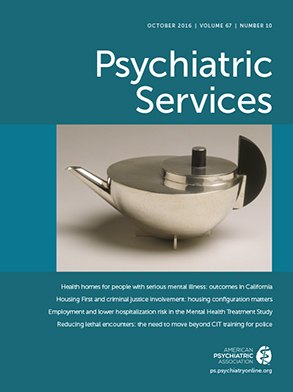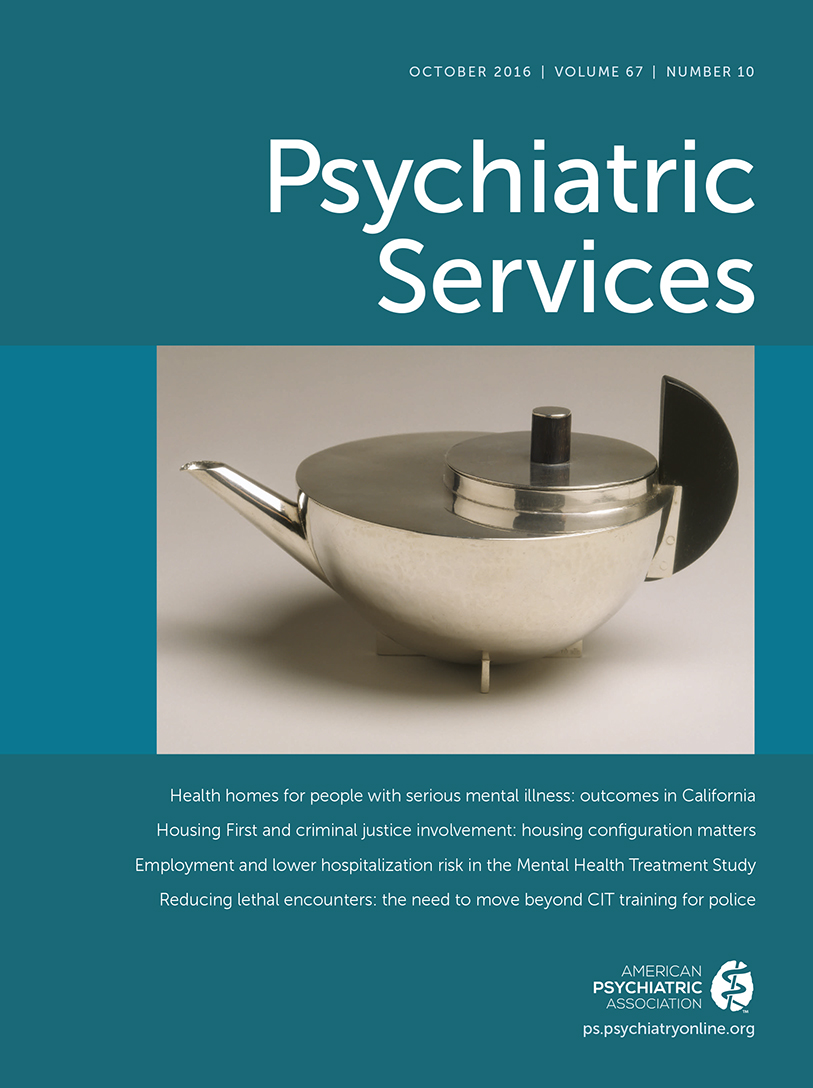Challenges in the Operationalization of Mental Health Quality Measures: An Assessment of Alternatives
Abstract
The Mental Health Quality Indicator Project
Quality Measure Alternatives and Operationalization: Delphi Process
| Issue, measurement concept, and base indicator | Alternative | |
|---|---|---|
| Source of data | ||
| Medication adherence: N of days with fill for antipsychotic (numerator)÷total days eligible for treatment of persons with schizophrenia over age 19 (denominator) | Medication was offered or prescribed (chart review); medication was filled (pharmacy database)b | |
| Wait times: N of days for all persons from date of referral to date of first mental health visit (numerator)÷total N of persons referred minus those without a visit (denominator) | Obtain from administrative datab; obtain from facility or patient survey | |
| Frequency or time frame | ||
| Medication monitoring: patients in denominator with 4 physician visits per year (numerator)÷patients with bipolar disorder receiving ≥1 prescription (denominator) | 2 visits, 3 visits, or 4 visits a yearb | |
| Symptom reduction: patients in denominator who within 3 months of a new treatment episode have a documented reduction in score on a standardized assessment (numerator)÷patients with a new treatment episode and ≥2 standardized assessments with same tool within 90 days of episode start (denominator) | Within 90 daysb; within 180 days | |
| Denominator limitation | ||
| Polypharmacy: patients in denominator with simultaneous prescriptions for ≥2 oral antipsychotics for ≥90 days during study period (numerator)÷all patients with schizophrenia prescribed ≥1 antipsychotics during study period (denominator) | Any diagnosisb; schizophrenia only | |
| Individualized care plan: total N of inpatients with an individual care plan constructed and regularly reviewed with patient (numerator)÷total N of inpatient separations or discharges (denominator) | Only inpatients; only outpatients; inpatients and outpatients (segmented and assessed separately)b | |
| Segment by population characteristics | ||
| Psychotherapy: persons in denominator receiving any psychotherapy during study period (numerator)÷persons with a mental health diagnosis treated in a specialty setting (denominator) | Segment by diagnosis (depression, anxiety, bipolar, schizophrenia)b; do not segment | |
| Criminal justice encounters: N of consumers with ≥1 arrest during fiscal year (numerator)÷total N of consumers receiving services during fiscal year (denominator) | Segment and assess adults and children separatelyb; do not segment | |
| Segment by service characteristics | ||
| Seclusion: total N of inpatients secluded (numerator)÷total N of inpatient discharges or separations (denominator) | Segment and assess seclusion and restraint episodes separatelyb; do not segment | |
| Injuries: total N of inpatients with significant injuries (numerator)÷total N of inpatients (denominator) | Segment by type of injury (falls or self-injury)b; do not segment | |
Conclusions
Acknowledgments
References
Information & Authors
Information
Published In

Cover: Tea infuser and strainer, by Marianne Brandt, circa 1924. Silver and ebony. The Beatrice G. Warren and Leila W. Redstone Fund, 2000, The Metropolitan Museum of Art, New York City. Image copyright © The Metropolitan Museum of Art; image source: Art Resource, New York City.
History
Authors
Competing Interests
Funding Information
Metrics & Citations
Metrics
Citations
Export Citations
If you have the appropriate software installed, you can download article citation data to the citation manager of your choice. Simply select your manager software from the list below and click Download.
For more information or tips please see 'Downloading to a citation manager' in the Help menu.
View Options
View options
PDF/EPUB
View PDF/EPUBLogin options
Already a subscriber? Access your subscription through your login credentials or your institution for full access to this article.
Personal login Institutional Login Open Athens loginNot a subscriber?
PsychiatryOnline subscription options offer access to the DSM-5-TR® library, books, journals, CME, and patient resources. This all-in-one virtual library provides psychiatrists and mental health professionals with key resources for diagnosis, treatment, research, and professional development.
Need more help? PsychiatryOnline Customer Service may be reached by emailing [email protected] or by calling 800-368-5777 (in the U.S.) or 703-907-7322 (outside the U.S.).
